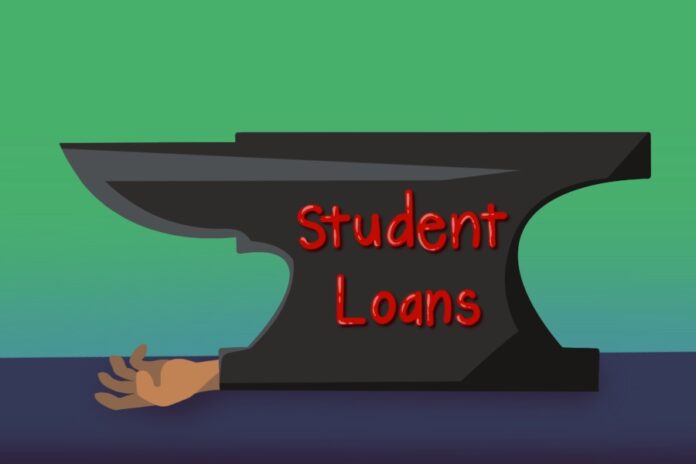How students feel about a proposed free college system
Perhaps the one thing unifying all college students is tuition. It affects all students one way or another. Some receive scholarships to help alleviate the pressure of tuition costs, but most students find themselves taking out loans or emptying bank accounts to pay the hefty price tag that comes with college. The idea of making college tuition free has seen its fair share of traction, but is it really a solution or would more problems emerge? Students across campus weighed in on this illustrious topic.
Noah Dickman, a third-year political science and economics double major, spoke about the pros that would accompany a free college system.
“One positive would be that college would be more accessible to more students,” Dickman said. “You’d have a more skilled workforce as a result.”
Dickman noted that private universities would be put on the hot seat, since more students would flock to public universities if tuition was free. Dickman believes the economic ramifications of free tuition would need to be investigated more to find a possible compromise.
The value of the college degree was also discussed as being caught in the crossfire of a free tuition system.
“I think, for undergraduate students, what [free tuition] would do is make a bachelor’s degree essentially the equivalent of a high school diploma,” Dickman said. “That would mean people would have to get a master’s degree, which, unless that is made free as well, it would really only be accessible to the upper class.”
Dickman also said that admitting international students may become more prevalent if tuition was free because public universities would still need to find a way to make money.
“The UC system accepts a lot of international students because they’re able to charge nearly twice as much,” Dickman said. “If tuition is suddenly free for Americans, there may be a problem where colleges would start admitting more international students as opposed to local residents.”
Aidan Pelle, a second-year chemical engineering major, shared Dickman’s sentiments, believing that free college tuition would encourage more students to attend college. He explained how, in his own family, it’s been difficult to support himself and his siblings all going to college. Pelle stated he may end up graduating with nearly $60,000 in debt.
Pelle described how free tuition would allow students greater opportunities to explore their interests instead of trying to graduate as quickly as possible.
“Personally, I like the idea of having one or two years to test out GE’s and see what major you’d actually like to go into,” Pelle said. “At the same time, I could see a lot more people just spending time in college to get away from their own personal issues.”
In addition to having students enroll in college simply to find a safe haven, Pelle also feared that free tuition would mean colleges would remove several aspects of college life he finds enjoyable.
“I would be concerned that colleges might cut out a lot of extracurriculars and classes, since cuts would have to happen somewhere,” Pelle said. “I really like the campus here and everything that is offered with it, so it would be sad to see a lot of extra classes go if college was free.”
Pelle also commented on the value of the college degree and how, if we moved to a free system, emphasis on grades and performance would mean more than simply getting a degree in a specific field. This would put an immense amount of pressure on students to do well and maintain a high GPA since the college degree would not tell the full story of a student’s individual success.
Andrew Lewis, a fourth-year civil engineering major, believes that, for societal good, a free college tuition system would be a great step in the right direction. Lewis agreed with Pelle that encouraging students to take more time to explore their interests may actually prove to be a hindrance.
“In my opinion, if we shifted to a free system, it would have to take more of a directed and focused approach,” Lewis said. “If taxpayers are supporting people’s education, then that system should get the most utility out of it. It’s difficult because a lot of people aren’t sure what they want to do, but we can’t have people staying in college for eight years because they don’t know what they’re going to do.”
Lewis also mentioned the contrast between trade schools and colleges, and how colleges should take more time in providing students with the necessary skills to enter the real world. While trade schools are an excellent avenue to learn specialized skills, Lewis stressed how important it is for public colleges to equip students with the abilities needed for their desired field. A free system may hinder that progress, but the real costs of college now may be offset by these larger goals.
When considering the effect free tuition would have on overall college admissions, Lewis described the conflict he believes could arise when deciding how to handle accepting students.
“I think there would have to be some kind of regulations about how colleges admit applicants,” Lewis said. “The states would probably get to determine their own twists on it, and polytechnic schools would probably require higher math standards.”
While the question of a free college tuition system may not have the clearest answer, it is a polarizing topic that should be considered carefully moving forward. Students from all backgrounds know the cumbersome issues of paying for college, but these costs include more than just classes or a college experience. Time will only tell how college costs will be addressed, but one thing is clear: students are willing to compromise with both sides to find a viable solution.
Written by: Vincent Sanchez – features@theaggie.org




